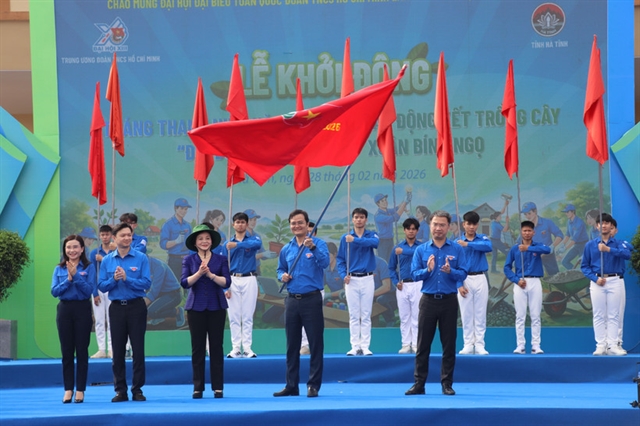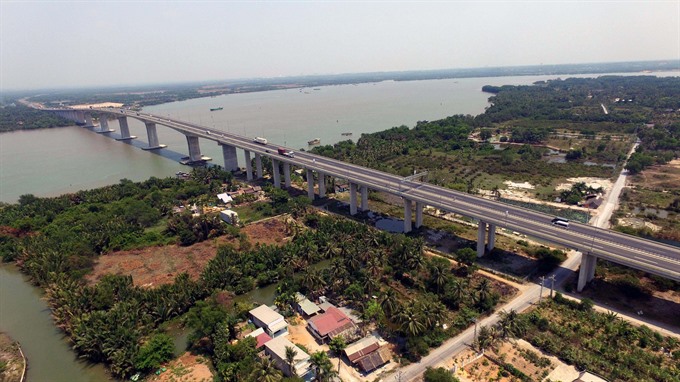 Society
Society

HCM City’s Party Secretary Nguyễn Thiện Nhân has urged the city to call for further investment in infrastructure and to promote public-private partnerships.
 |
| A section of the HCM-Long Thành-Dầu Giây Expressway. The HCM City administration was urged to call for further investment in infrastructure and to promote public-private partnerships. — VNA/VNS Photo Mạnh Linh |
HCM CITY — HCM City’s Party Secretary Nguyễn Thiện Nhân has urged the city to call for further investment in infrastructure and to promote public-private partnerships.
Speaking at a recent meeting, Nhân also asked the city to review a land plan and publicly call for investment on online government websites in different localities.
Nguyễn Thành Phong, chairman of the city’s People’s Committee, said the city was seeking VNĐ500 trillion (US$22 billion) for urban infrastructure by 2020. The State can only meet around 32 per cent of that amount, which excludes costs to remove houses on or along canals in the city.
Phong called on businesses to invest in public transport, the metro system, express buses, underground parking lots, satellite urban development and commercial service centres.
Bùi Xuân Cường, director of the Department of Transport, said investment was needed for two more flyovers and 106 km of roads, as well as for metro line No 1 and ring road No 2, which are both under construction.
For the 2016 – 2020 period, the city needs VNĐ318 trillion ($14 billion) for 189 projects, including building bridges and roads (connecting Tân Sơn Nhất Airport, Cát Lái Port and ring roads, among others), as well as parking lots for cars and public buses.
Trần Trọng Tuấn, director of the Department of Construction, said the city has 935 old apartment buildings with 1,249 apartments. Of that number, 577 buildings were built before 1975 and are in disrepair.
The city plans by 2020 to renovate half of them that are in seriously poor condition, he said.
To improve the city landscape, at least 20,000 houses on or along canals will be removed. More than 50 per cent of the houses are in District 8. To do so, investment is needed from businesses and the private sector.
Nguyễn Toàn Thắng, director of the Department of Environment and Natural Resources, said the city also needed investment to treat waste with cutting-edge technologies as the city produced 8,300 tonnes of waste a day in the 2006-2016 period, of which 76 per cent was buried.
As it is expected that by 2020, around 10,080 tonnes of waste will be produced each day, the city is calling for investment in thermal plasma technology. Authorities are also looking for funds for anti-flooding projects.
Nguyễn Hoàng Anh Dũng, deputy director of the Steering Centre for the Urban Flood Control Programme, said the city needed more than VNĐ73 trillion ($3.2 billion) for the 2016 - 2020 period for the flood control programme.
The capital would mainly come from official development assistance (ODA) loans to build waste treatment plants and systems to forecast rains and monitor canals, he said. — VNS

.jpg)


